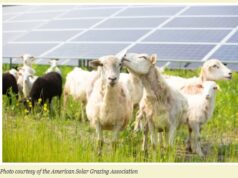Getting the Story Straight on Dominion Rates and Bills
by Cindy; cross-posted at VAPLAN
We hear a lot of numbers thrown around about what Dominion charges us ratepayers for electricity. Dominion execs report (and many of our legislators repeat) that residential rates are “cheaper than every East Coast state to our north, and … very competitive among Southern states.” In contrast, the Virginia Poverty Law Center estimates that “Virginia households experience an already higher than average electric burden of 3.1%, compared to a national average of 2.7%.” And now, a new report from Clean Virginia claims Virginians pay a “Dominion tax” of $254 a year in excess charges. So who’s right?
I did some digging into hopefully unbiased statistics, and I found some interesting things out. First things first: electric rates are the base, cents per kilowatt-hour charges. Bills include this rate times the amount consumed. In addition, though, bills will include an additional fee or surcharge for various costs of producing or distributing electricity that the State Corporation Commission (SCC) has allowed the utility to pass on to ratepayers. What goes into this additional fee is often contentious, and can include some proportion of things like the costs of retiring old coal plants and dealing with the coal ash cleanup; the costs of new investments in undergrounding transmission lines, or building solar farms; the costs of complying with changes in federal environmental regulations; costs of conservation programs.
At the end of the day, the SCC allows the utility to make a certain percent rate of return (profit) on its enterprises. Like it or not, Dominion is not an altruistic, nonprofit entity. Their objective is neither to make ratepayers more wealthy nor is it to stop climate change from destroying earth. Their objective is to make the maximum profit they are allowed, without breaking any laws. So there’s a perpetual battle between the utility and the SCC as to what costs they can pass on to ratepayers. Allowing them to pass on costs of renewables investments may speed up the rate at which they make those investments—even if those investments make financial sense for the utility, they’ll still try to convince the SCC to let them pass on those costs. Bottom line: they are a for-profit corporation; if we want them to make decisions that aren’t based on profit, we’ll have to regulate them to do so.
So, here is how Virginia’s rates stack up against other states. These rates come from the US Energy Information Administration (EIA). We do, in fact, have fairly low rates. Our residential rates are 18th lowest in the country. [complete data analysis here] The lowest rate is in Washington, and the highest is in Hawaii. And it is true that the states to the north of us have higher rates than us, and that we are competitive with other southern states, some having lower rates and some having higher. What’s also very interesting is that we have the lowest commercial rates in the nation.
But what about bills? Here, as people have mentioned, Virginia doesn’t look so great. I have two measures here—the first comes from EIA, and measures monthly average bills by state. The second, from the US Census American Community Survey, 2016, is a self-reported household annual electric cost measure, for a sample of 6 million households nationally. The two measures are highly correlated (.84 for you nerds out there). Virginia ranks 37th lowest bills with one measure, and 41st lowest with the other.
As noted above, bills are affected by two things—how much electricity ratepayers are using, and all the extra add-ons that the utility is allowed to tack on. So how do we know whether Virginia’s bills are high because we use a lot of electricity, or because Dominion is allowed to charge us extra for lots of things? If we think about things that might affect electricity consumption, perhaps we can find some answers. Here were the things that came to my mind quickly, and that I could find data on: temperature extremes are likely to affect energy usage; and the average size of homes, since average household bills will average over tiny NYC apartments and giant mansions, which have dramatically different consumption. Using fancy econometrics (which I’m totally glad to share if anyone wants me to send a copy), I tried to predict how much a household ought to consume, and compared that to how much they did. I could explain almost 60% of the differences in consumption just from temperature extremes, home sizes and population density. But here’s the deal: we consume too much electricity, even taking into account our temperature extremes and our apartment/mansion distribution! We consume 30% more electricity than what would be predicted! That’s the 46th biggest difference in the country.
Here’s where our energy policy, and that ongoing battle between the SCC and the utility really gets ugly in my opinion. Because let’s face it—it is NOT in Dominion’s interest to reduce demand for electricity. And the SCC mostly takes dollar costs to ratepayers into account, without giving nearly enough consideration to the damage we’re doing to the environment. So as a result, Dominion proposes efficiency (demand-side) projects that they pretend to want to undertake; but then they estimate the costs really high so that when the SCC reviews the projects, it rejects the proposal, because it would cost the ratepayers too much! Note that this isn’t necessarily the only reason Virginia has such high consumption, but it certainly doesn’t help.
So, finally, returning to the bills. Taking into account our (fairly low) rates and our (very high) consumption, how bad are our bills? This is a measure of the effect of all the other factors that Dominion or whichever utility are allowed to add into our bills. Not so bad, it turns out—a typical state with the same rates and consumption would be expected to have bills actually about 2% higher per year, or $46 per year. Which doesn’t mean Dominion isn’t sticking us for things that we don’t want to and probably shouldn’t have to pay for—it’s just that the same thing happens in most other states too.
The facts for me are this: we aren’t paying unfair, exorbitantly high rates or bills compared to the rest of the country. But what we’re getting for the money, in terms of what Virginia contributes to global climate change is the real problem. In my opinion, bouncing back and forth between the message that Dominion is ripping consumers off, and the message that Dominion must be made to take aggressive steps to move away from fossil fuels and towards renewables and greater energy efficiency, isn’t as productive as if we stick to the latter message.




![[UPDATED 1/29/26] Audio: Sen. Tim Kaine Talks to Blue Virginia About His “Five-Point Plan” to Fight Trump’s Orban-Like Assault on US Democracy; Civil Disobedience a la MLK Jr.; Trump’s Bogus “Energy Emergency”; the Crucial Importance of the 2025 VA Elections; etc.](https://bluevirginia.us/wp-content/uploads/2025/02/kaineinterview2-238x178.jpg)







